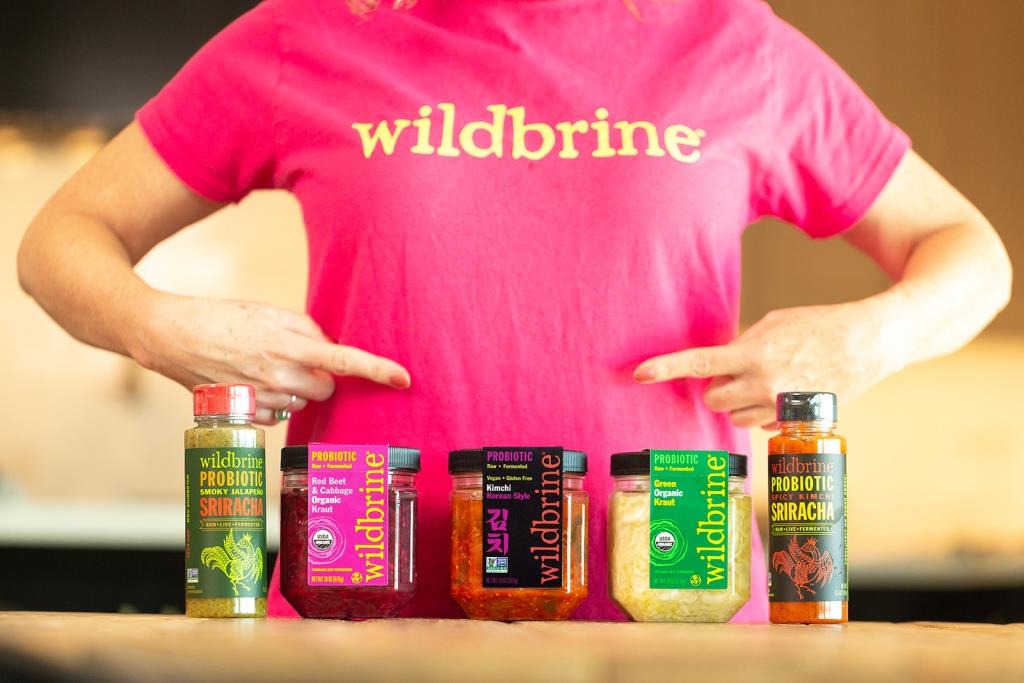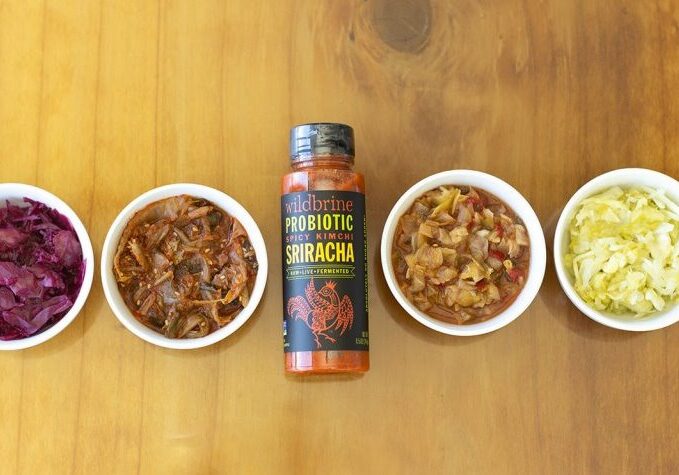What are the signs that probiotics are working? How can you tell when a healthy mix of gut bacteria has your body tuned up and purring?
First of all, a major sign of a healthy gut is that you don’t have much to notice. According to a medically-reviewed article in Everyday Health, when the gut is healthy, “daily bowel movements should be free of symptoms like diarrhea, constipation, and loose stools. Other signs of a healthy gut include being free of rectal symptoms like hemorrhoids and abdominal symptoms such as painful gas, bloating, and abdominal pain.”
In other words, the gut just works.
“With a healthy functioning digestive system, you’re not reactive to foods or external symptoms like stress and environmental factors,” says Rosia Parrish, a naturopath in Boulder, Colorado. “You also have less susceptibility to conditions such as skin disorders, autoimmune conditions, inflammatory responses.”
Which means that if you notice signs of digestive pathology, watch out for other conditions that may result. Recent research has linked an unhealthy microbiome to stomach discomfort, fatigue, food cravings, obesity, skin irritations, allergies, autoimmune conditions, mood issues, and migraines.
To begin the journey towards a healthy microbiome, eating fermented foods containing live cultures of health-promoting microbes like the sauerkraut, kimchi, and other products from wildbrine, starts the process. These foods contain the very microbes that are a powerful driver of good health through the human body.
5 Signs that Probiotics are Working
Since the microbiome consists of from two to four pounds of microorganisms that live primarily in the cecum — part of the large intestine — it’s easy to check our gut health by keeping tabs on our bowel movements. Here’s a rundown on what to look for:
- Frequency of bowel movements. People differ in frequency, but anything between three times a day and three times a week is considered normal. Regularity—having to go about the same time each day is a good sign. Going first thing in the morning is also a good sign of regularity. Having to urinate during the night is typical for many people, especially the elderly, but having a bowel movement during the night might be a sign that something’s not right and you might want to mention it to your doctor.
- What’s your transit time? The transit time is the time between when you eat a certain food and its residue shows up in your stool. The easiest way to check transit time is to eat some cooked dark red beets at dinner and then note when red coloration shows up during a subsequent bowel movement. A typical transit time for a normal bowel is about 28 hours, but that can differ—shorter or longer—by a third.
- Healthy guts make healthy stools. The microbiome dismantles much of your food into nutrients that are absorbed through the walls of your intestines. After this, the residue should form stools that are medium to dark brown, hold together in sausage shapes in a single large or just a few smaller pieces, and they should sink in the toilet bowl. An unhealthy gut makes stools that are hard little nuggets, indicating constipation; are very soft or liquid, indicating diarrhea, and float, indicating undigested fat in the stool, which in turn indicates an absence of fat-digesting bacteria in the microbiome.
- A major sign of a healthy microbiome is a pain-free bowel movement. The movement should be pain free, but also proceed without you having to strain really hard to get things moving. Pain or severe straining could be a sign of irritable bowel syndrome, constipation, or food allergies and should be reported to your doctor.
- “Fart proudly,” as Benjamin Franklin wrote. Well, pass gas discretely and politely so as not to give offense might be a better recommendation, but flatulence is a normal function of a healthy microbiome, and should occur between 10 and 20 times a day in a healthy person. It’s not healthy to withhold gas, as it can lead to bloating and discomfort. Flatulence can run the gamut from hardly noticeable to grossly obnoxious, so be kind to your fellow humans when the need arises.

Personally, I have noticed several of the signs that probiotics are working to achieve homeostasis in my own body. Homeostasis is that point of delicate balance when the body’s functions perform well and disease is held in check. One becomes less aware that something is wrong and more aware that everything is working well. It’s a good feeling, and ascribable to a host of benefits that arise when the mix of bacteria, viruses, and fungi in the microbiome have established a good ecology.
When this ecology is established in the gut, its benefits spread throughout the body, enhancing the performance of the immune system, reaching through the vagus nerve to calm the mind and improve the mood, and even suppressing disease-causing imbalances of microbes in the mouth. For many years I had problems with dental caries, but when I started eating the probiotic foods that wildbrine prepares (I’m a big fan), I noticed that my semi-annual check-ups always gave my teeth a clean bill of health. The oral microbiome is connected to the gut microbiome through the digestive system. It appears that when eating fermented foods helps establish a healthy gut microbiome, the oral environment is also affected. As the National Library of Medicine states, “The oral microbiome is crucial to health as it can cause both oral and systemic diseases. It… forms an ecosystem that maintains health in a state of equilibrium.”
A word of caution: Antibiotics act like a bomb dropped on the microbiome, killing off the good microbes as well as the pathogens. And yet, sometimes antibiotics are necessary as prescribed by your doctor. If so, make sure you eat a good portion of probiotic foods every day, as well as a glass of kefir or probiotic-rich yogurt (preferably without sugar) in the morning. Even though the antibiotics are killing off your microbiome, you are replenishing it, which should help alleviate some of the ill effects of antibiotic use.
About the Author: Sonoma County resident Jeff Cox is the author of 24 books, including The Essential Book of Fermentation (Avery, 2013)
